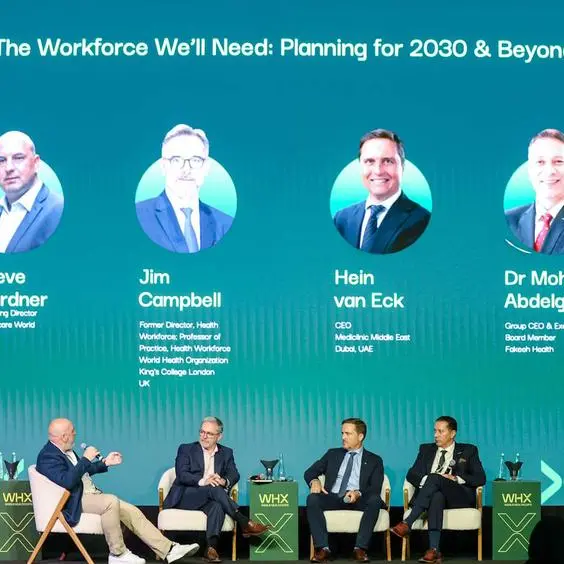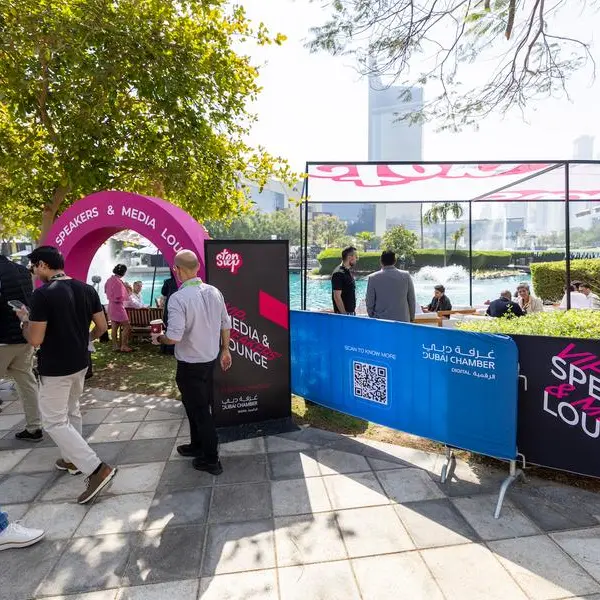Abu Dhabi - Abu Dhabi Islamic Bank (ADIB), a leading financial institution, brought together leading industry experts for a roundtable discussion on the increasing importance of fintech as a means of financial inclusion and empowerment. The event was held as part of the bank’s involvement in the Ethical Finance Innovation Challenge and Awards (EFICA), an initiative which aims to recognise people and organisations who use financial initiatives to support society.
Held in collaboration with the Dubai Islamic Economy Development Centre and Thomson Reuters, the roundtable provided a platform for dialogue on key topics including: fintech’s role as a source of positive change, the importance of creating a robust fintech ecosystem, and the role that Islamic banks can play in advancing the fintech revolution.
In his opening remarks, Khamis Buharoon, Acting CEO & Vice Chairman at ADIB, said: “Since we launched EFICA four years ago, we have seen first-hand, through the hundreds of inspired projects that we have supported through the awards, that fintech is increasingly playing a positive role in society. As an Islamic bank, we are rooted in ideals of partnership and sharing of risk and return and we know that there are like-minded people across the industry, in conventional and sharia-compliant institutions, in long-established banks, and in fintech start-ups. The dialogue and collaboration at this EFICA roundtable will further support the advancement of fintech as a force for good in society.”
His Excellency Abdulla Al Awar, CEO, Dubai Islamic Economy Development Centre, said in his keynote speech, “There is no doubt that fintech has, and will continue to diversify financial services and increase their accessibility to the public. As a result, fintech will empower financial institutions through growing the number of customers and enabling greater access to new markets, even while reducing services and management costs. However, to truly optimise fintech in driving production and eventually progress, we need to rationalise and humanise technology. This will allow it to achieve its mission of enhancing the quality of life, support development and eradicate unemployment and poverty.”
During the session, three panel discussions were held to discuss how the financial sector can prepare for the expansion of fintech in the region. The first panel session, moderated by David Lecea, Principal of Roland Berger, discussed how Fintech can make traditional banking more efficient and accessible. The panel featured Daren Taylor, Chief Design Officer at BankClearly; Mahdi Kilani, Head of Business Banking at ADIB; and Omar Hamid, Chief Design Officer at LaunchGood.
The second panel session moderated by Haytham Elmaayergi, Global Head of Transaction Banking at ADIB, tackled the significant business risks of incumbent players and what are the government initiatives done to promote FinTech as a key part of the technology ecosystem. Sharing their views were Raja Al Mazrouei, Acting EVP of DIFC’s Fintech Hive; Todd Obrien, Managing Director of SBC Smart City Dubai; and Wai Lum Kwok, Capital Markets Executive Director, ADGM.
The final panel session, moderated by Mustafa Adil, Head of Islamic Finance for Thomson Reuters, featured Ashar Nazim, Managing Director of Finocracy, Petr Klimes, Head of Digital at ADIB and Haytham Elmaayergi, Global Head of Transaction Banking at ADIB, discussing the different ways Islamic banks can capitalise and benefit from the Fintech Revolution.
ADIB continues to integrate pioneering FinTech solutions across its range of banking services. The bank has partnered with Fidor to launch the region’s first ‘community-based digital bank’. The new platform is designed to fit the lifestyle of millennial consumers also known as Generation Y, as well as those looking for a digital offering that matches their banking needs. This year, ADIB launched its new generation of digital branch called ‘ADIB Express’, providing customers with access to an array of digital services within the branch environment.
Over 67% of transactions were carried out on ADIB’s digital platforms in H1 2017, including an average of 1.7 million mobile transactions every month. As part of its digital innovation strategy, the bank has also recently revamped its internet and mobile banking platforms to enable customers to conduct their mobile and online banking in a simpler and more intuitive manner across all devices.
-Ends-
About ADIB
ADIB is a leading bank in the UAE with more than AED 122 billion in assets. Its 951,000 customers benefit from the third largest distribution network in the UAE with 81 branches and more than 720 ATMs. The bank also offers world-class online, mobile and phone banking services, providing clients with seamless digital access to their accounts 24 hours a day. ADIB provides retail, corporate, business, private banking and wealth management solutions. The bank was established in 1997 and its shares are traded on the Abu Dhabi Securities Exchange (ADX).
In the UAE, the Bank has more than 2,000 employees and remains one of the leading banks in the recruitment, development and promotion of local talent in all the markets in which it operates. The bank has one of the highest Emiratisation ratios with approx. 40 percent of the bank’s workforce being UAE Nationals.
ADIB has presence in six strategic markets: Egypt, where it has 70 branches, the Kingdom of Saudi Arabia, the United Kingdom, Sudan and Iraq.
Named “Best Bank in the UAE” by The Financial Times’ The Banker publication, ADIB has a rich track record of innovation, including introducing the award-winning Ghina savings account, award-winning co-branded cards with Etihad and Etisalat and a wide range of financing products.
© Press Release 2017


















